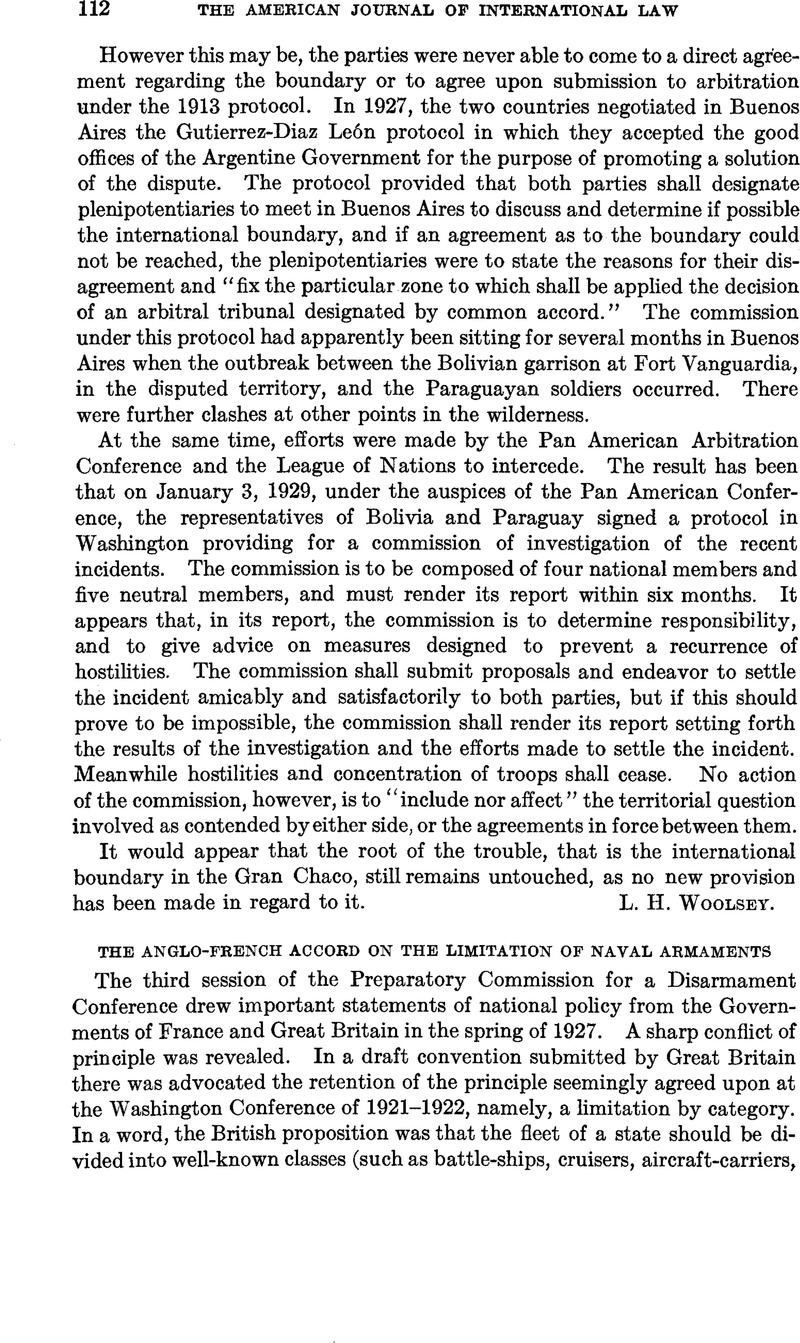No CrossRef data available.
Published online by Cambridge University Press: 06 June 2017

1 Extract from a speech by Viscount Cecil, at 18th public meeting, April 5, 1927. Misc. No. 6 (1928), Papers reg arding the Limitation of Naval Armaments (Cmd. 3211), p. 7.
2 Id., p. 6.
3 Id., pp. 10 and 9, respectively
4 Id., p. 12.
5 Telegram from Lord Cushendun to Mr. Chilton, Aug. 10, 1928, id., 30.
6 Telegram from British Foreign Office to Mr. Chilton, July 30, 1928, id., 27.
7 Mr. Houghton to Lord Cushendun, Sept. 28, 1928, id., 34.
8 It was stated also that at the Three-Power Conference at Geneva in 1927, the British delegation had proposed that cruisers be thus divided into two classes: those carrying 8-inch uns, and those carrying guns of 6-inches or less in calibre; and further that 8-inch-gun cruisers be limited to a small number or to a small total tonnage limitation, and that the smaller class of cruisers carrying 6-inch guns or less should be permitted a much larger total tonnage, or, what amounted to the same thing, to a very large number of cruisers of that class. It was added that the limitation proposed by the British delegation on the smaller class of cruisers was so high that the American delegation considered it in effect on limitation at all. It was declared that the same proposal was again presented in a new and even more objectionable form in the Anglo-French understanding, which still limited large cruisers which were suitable to American needs, but frankly placed no limitation whatever on cruisers carrying guns of 6-inches or less in calibre.
9 It was added that: “ The American Government has no objection to any agreement between Great Britain and France which those countries think will be to their advantage and in the interest of limitation of armament, but naturally cannot consent that such an agreement should be applied to the United States.”
10 They reviewed the position taken by the United States at the Washington Conference, at the first session of the Preparatory Conference, and at the Geneva Conference. There was announced also the readiness of the Government of the United States to use its bestefforts to obtain a basis of further naval limitation satisfactory to all the naval Powers, including those not represented at the Three Power Conference at Geneva, and a willingness also to take into consideration in any conference the special needs of France, Italy or any other naval Power for the particular class of vessels deemed by them most suitable for their defense.